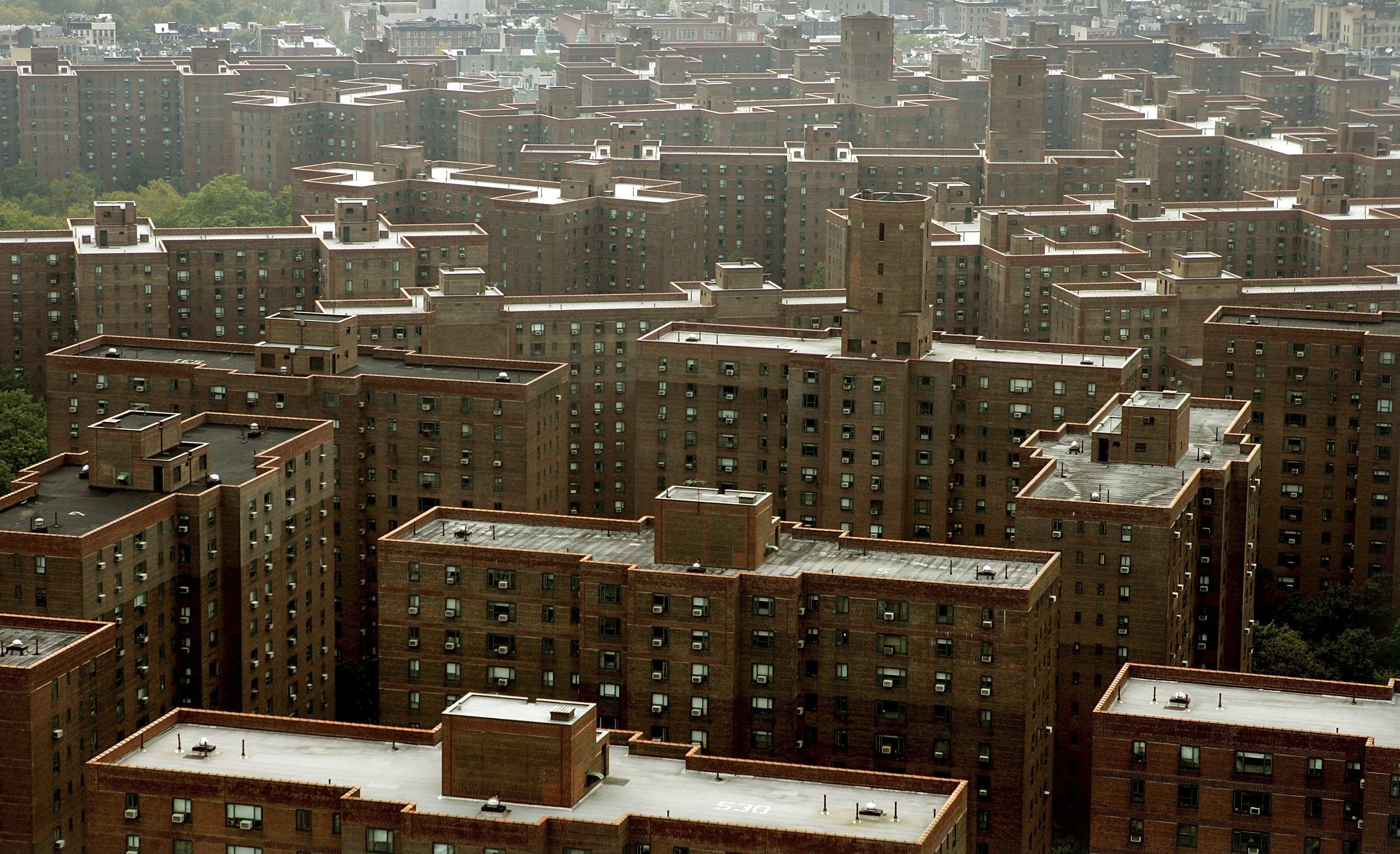How American real estate went bananas
Want to fix America's real estate problem? You have to fix inequality first.


Most Americans would probably agree that housing costs are out of control. But they might not realize just how out of control.
Housing experts put the threshold for affordability at one-third of annual household income. If you're spending above that on rent or a mortgage, your housing costs are a serious threat to your financial wellbeing.
According to new data, it takes a wage of over $17 an hour, working full time, to meet that threshold for a one-bedroom apartment. That's a national average, but only in 12 counties can a full-time worker paid the local minimum wage get away with spending a third of their income on a one-bedroom rental.
The Week
Escape your echo chamber. Get the facts behind the news, plus analysis from multiple perspectives.

Sign up for The Week's Free Newsletters
From our morning news briefing to a weekly Good News Newsletter, get the best of The Week delivered directly to your inbox.
From our morning news briefing to a weekly Good News Newsletter, get the best of The Week delivered directly to your inbox.
As for two-bedroom apartments, we could raise the national minimum wage to $15 an hour, and full-time workers would still only afford a two-bedroom apartment in 10 states. In the worst metropolitan areas like San Francisco, New York, and D.C., you'd need to make over $58, $31, and $33 an hour, respectively, to afford a two-bedroom apartment.
Basically, the cost of housing has come completely unglued from ordinary Americans' ability to pay for it.
So how did that happen? I think we should keep two very simple facts in mind.
First, the cost of housing is overwhelmingly driven by the cost of the land it sits on. And land is weird. The whole point of a free market is that when prices change, the economy can adjust accordingly. If the price of shoes or cars or plumbing jumps up, the market will provide more shoes and cars and plumbers. Supply increases, and costs come back down. Land doesn't work that way: No one is going to produce more of it, no matter how expensive it gets. The supply we have is the supply we have. So when the price of land rises, there's no self-correcting market mechanism to bring it back down.
A free daily email with the biggest news stories of the day – and the best features from TheWeek.com
Second, inequality just keeps climbing. The 1 percent are claiming a bigger and bigger share of all income produced in the economy, so every year they get more money to spend on living in the most desirable places. Ultimately, the price of a piece of land is driven by how many people want to move there. The most desirable pieces of land are where the 1 percenters will flock, and they can just keep outbidding each other and everyone else.
Combine these two simple facts, and you have a perfect economic mechanism to just perpetually ratchet up housing prices.
This negative feedback loop is also made much worse by the way we treat housing, i.e. land, as a form of wealth storage. It encourages speculation: People buy up the most expensive housing they can, not so much because they want to live there, but on the hope its price will increase even further and they'll make a killing when they sell it. The more money inequality hands to the rich, the more assets they need to park that money in. And land is one heck of an asset.
Then there's the mortgage interest deduction. The more money you spend on a home, the bigger the tax break you get. That rewards speculation.
Now, all this explains why housing prices are rocketing into the stratosphere in major cities. But even in the rest of the country, where prices are nowhere near that high, they're still too high. How did that happen?
The answer, I think, is simply that the U.S. economy is still moribund, and has been moribund for a very long time. A few decades ago, counties with small populations would see job and business creation rebound the most during economic recoveries. But since 2008, job and business creation hasn't really recovered at all in rural areas. Cities are the last remaining islands of economic opportunity — a few cities much more so than the rest — and everyone is fleeing to them.
Or at least they're trying to. Places like San Francisco, New York, and D.C. haven't been able to build nearly enough housing to keep up with demand. Partially, that's because local zoning rules and ordinances hold back construction. But it's also because of raw physical limits: These cities wouldn't be filling in new green space, but rather ripping up and replacing existing buildings and infrastructure. And they'd have to do it at an enormous pace.
The American upper class — say, the top 10 or 20 percent — can still (sort of) afford to move there, with the truly wealthy leading the charge. But everyone else has to go elsewhere. That's led to something remarkable and totally backwards: Instead of moving where income growth is high, lots of Americans are moving where income growth is sclerotic, because housing prices are actually within reach.
But the incomes in these places aren't sufficient to actually pay for housing, so new supply isn't built. So demand still outpaces supply. Not nearly as badly as in the biggest metroplexes. But bad enough to make housing affordability a problem.
Finally, don't forget our struggling economy is itself a major driver of inequality: It's what gives the 1 percent the political and economic leverage to extract all that wealth from the rest of us.
Put it all together, and we wind up with a situation where the 1 percent propels housing prices into the stratosphere in the most desirable places. That, in turn, raises the cost of real estate across the rest of the country.
The most popular solution among wonk-types is probably reforming local land-use rules, so more housing units can be built in places like San Francisco, New York, etc. And we should do that. But I think it's clear these reforms don't actually treat the U.S. economy's underlying disease.
More fundamental reforms would start through the tax code. We need to scrap the mortgage interest deduction, or at least deeply reform it. We should return to New Deal-era income tax rates, to siphon off all the money the 1 percent have stored up. We could also pass a land value tax, to cut down on land speculation.
The key thing to remember is that truly solving the housing crisis requires going after income inequality directly.
Jeff Spross was the economics and business correspondent at TheWeek.com. He was previously a reporter at ThinkProgress.
-
 Pakistan: Trump’s ‘favourite field marshal’ takes charge
Pakistan: Trump’s ‘favourite field marshal’ takes chargeIn the Spotlight Asim Munir’s control over all three branches of Pakistan’s military gives him ‘sweeping powers’ – and almost unlimited freedom to use them
-
 Codeword: December 6, 2025
Codeword: December 6, 2025The daily codeword puzzle from The Week
-
 Sudoku hard: December 6, 2025
Sudoku hard: December 6, 2025The daily hard sudoku puzzle from The Week
